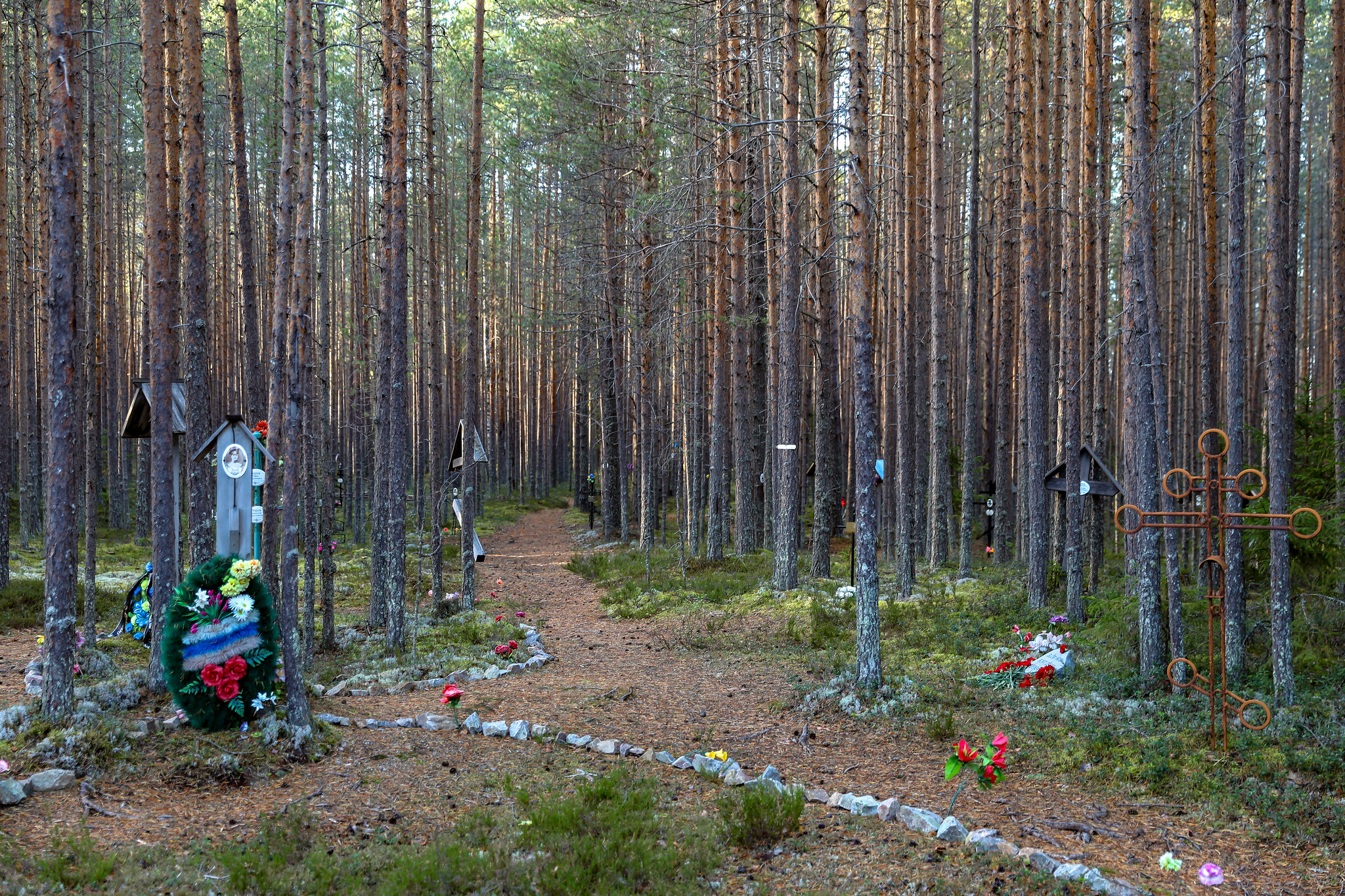[vc_row][vc_column][vc_single_image image=”118142″ img_size=”full” add_caption=”yes”][vc_column_text]On 10 January 2022, Yuri Dmitriev, a historian prosecuted on disputed charges of paedophilia, and his lawyers lodged appeals with the Supreme Court of Karelia where he was prosecuted. Dmitriev’s case is part of a long-running battle between the authorities and the Memorial Human Rights Centre (MHRC), whose Karelia branch was led by the historian.
The battle may be drawing to a conclusion. Two weeks’ earlier, on 28 December 2021, Russia’s Supreme Court ordered the dissolution of MHRC, which was established in 1988 by young reformers and Soviet dissidents. It was accused of not using the “foreign agent” designation on all its material indicating that it was a body “receiving overseas funding and engaging in political activities”. Prosecutor Zhafyarov also denounced Memorial for painting “the USSR as a terrorist state”.
The decision indicates that Russian President Vladimir Putin is now blatantly rehabilitating the USSR. Dmitriev’s prosecution in 2016 dates from an era when the regime was more veiled in its attack on critics of the regime. Another historian Sergei Koltyrin, who also researched Stalinist crimes in Karelia, was arrested on disputed paedophilia charges in 2018. He died in a prison hospital on 2 April 2020; Dmitriev and his defence attorney fought several appeals but on 27 December 2021 he was sentenced to 15 years in a strict-regime penal colony.
“Their real crime,” says John Crowfoot of the Dmitriev Affair website, “was to commemorate the victims of Stalinism, in particular the thousands shot at Sandarmokh killing field during the Great Terror (1937-1938).” Sandarmokh is the last resting place for as many as 200 members of Ukraine’s Executed Renaissance, who were leading figures in the blossoming of Ukrainian culture during the 1920s.
The imminent closure of Memorial will sicken many in Ukraine, where an estimated 3.9 million people died in the Holodomor famine genocide, a topic which the organisation has also helped research. Similar concern will be felt in the Baltic States and Kazakhstan, where up to 1.5 million people died of a famine related to collectivisation in 1931-33 and where Russian troops have been involved in violently crushing protests since the beginning of January 2022.
Even before the dissolution of Memorial there were attempts to restrict the discussion around Soviet-era crimes in Russia. In 2011, for example, historians were instructed to compile archival documents to deny the unique character of famine in Ukraine during 1932-33 and instructed on how to write about the subject. Yet numerous documents indicate that Ukraine and ethnically Ukrainian areas of Russia were targeted (in particular the 23 January 1933 directive sealing the borders of these areas to stop peasants fleeing starvation). And in 2008 a letter from Russian president Dmitry Medvedev to Ukrainian president Viktor Yushchenko continued the line that it was simply a tragedy when he wrote that “the tragic events of the 1930s are being used in Ukraine in order to achieve instantaneous and conformist political goals.”
There are already laws outlawing comparisons of the Soviet Union to Nazi Germany as of June 2021. But how will the decision affect debate in Russia now? According to Memorial, who I contacted for this article, their dissolution means that now, “there is only one point of view that is acceptable in discussions on historical topics, that of the state”.
Putin is playing up nostalgia for the Soviet Union. He is even surrounding Ukraine with troops and possibly considering an invasion in an attempt to boost his flagging popularity. The closure of Memorial combined with troop movements is one of many signals that he is considering not only rehabilitating but even perhaps partly renewing the Soviet Union by annexing Ukraine.
However, rather than enthusiastically flocking to join the new union Ukrainians are enlisting in territorial defense units.
Thanks in part to the work of Memorial, and Russian and Ukrainian demographers and archivists, they know that millions of their family members died at the hands of the regime and they do not want to relive that experience. Putin may succeed in stifling debate in the media and in universities but he cannot stop people in a country as big as Russia from talking. The mass graves in the tundra and across many former Soviet countries cannot be censored off the map.
Steve Komarnyckyj an award-winning poet and translator. He works on Ukrainian literary translations and is currently producing a book by Lina Kostenko[/vc_column_text][/vc_column][/vc_row][vc_row][vc_column][/vc_column][/vc_row]





